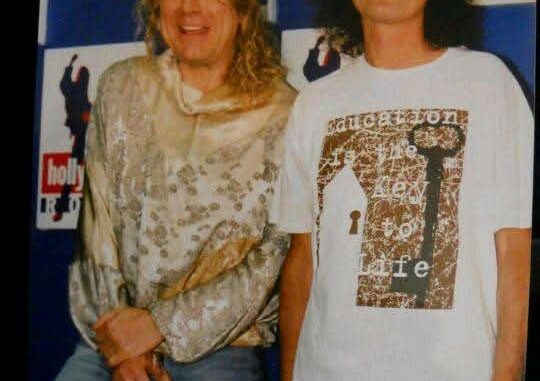
Few musical partnerships have captured the imagination and devotion of fans like that of Robert Plant and Jimmy Page, the creative soul of Led Zeppelin. Together, they crafted a sound that was not only groundbreaking in its time but remains timeless in its emotional depth and sonic innovation.
Jimmy Page’s role as the band’s producer gave him complete control over the band’s sound—a rare luxury in the world of rock. He transformed the studio into a creative playground, wielding it like an instrument. Page layered guitars into massive, hypnotic walls of sound and pioneered techniques such as reverse echo, ambient mic placement, and the use of natural reverb. These innovations helped forge Zeppelin’s mythic sound—raw, thunderous, and yet strangely ethereal.
Robert Plant, meanwhile, brought poetry to the power. His lyrics were steeped in vivid imagery and storytelling, often drawing from mythology, literature, and personal introspection. Whether channeling the fantastical adventures of Tolkien in “Ramble On” or the quiet sorrow of “Ten Years Gone,” Plant gave Zeppelin a voice that was at once mystical and deeply human. His vocal range and emotion elevated Page’s compositions into sonic odysseys.
Outside the studio, their journey was anything but smooth. They were thrust into superstardom, grappling with tragedy, burnout, and the often brutal pressures of fame. Yet, even in their most difficult moments, there was a connection between them that never faded. Fans could sense it in their chemistry onstage, in the way Plant rode the wave of Page’s riffs, or how Page’s guitar wept under the strain of Plant’s soaring vocals.
Their story, in many ways, reads like a classic epic: a rise to glory, a time of conflict and change, and a legacy that endures. Though they ultimately pursued different paths, their few reunions over the years rekindled the magic and reminded the world of what they had achieved together.
Today, their influence is felt far and wide—from young bands finding their identity to generations of fans spinning Zeppelin records for the first or hundredth time. Page and Plant didn’t just create music—they created moments, and those moments, forged in mutual respect and artistic daring, will echo for decades to come.
Leave a Reply